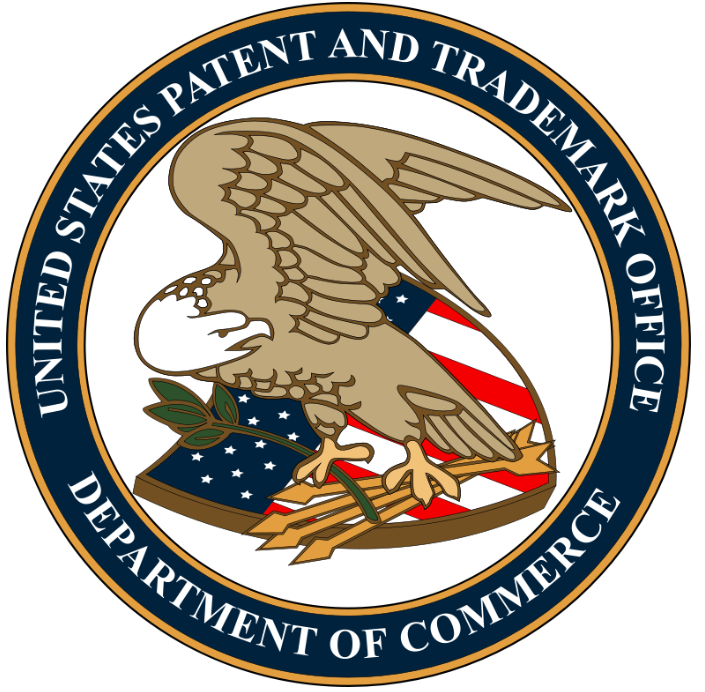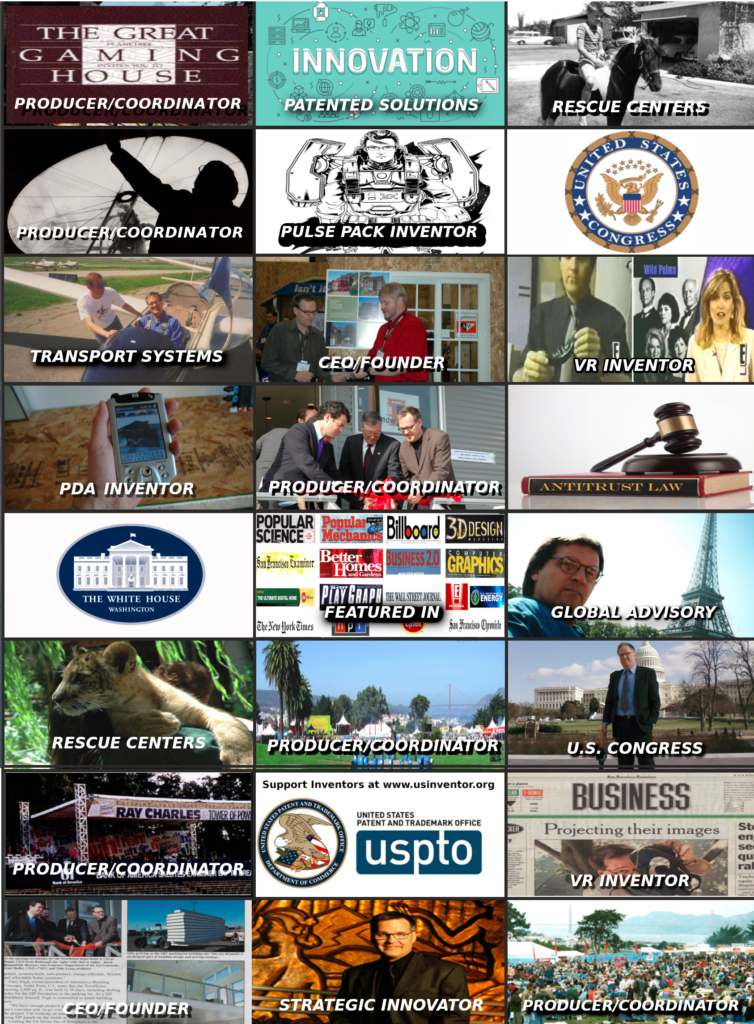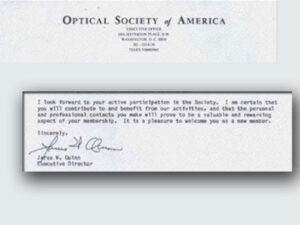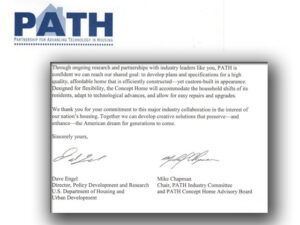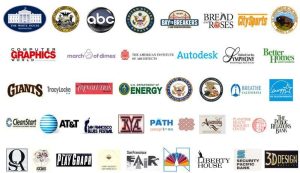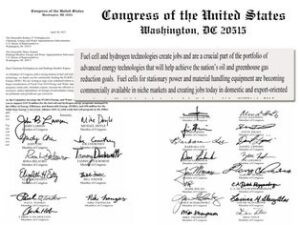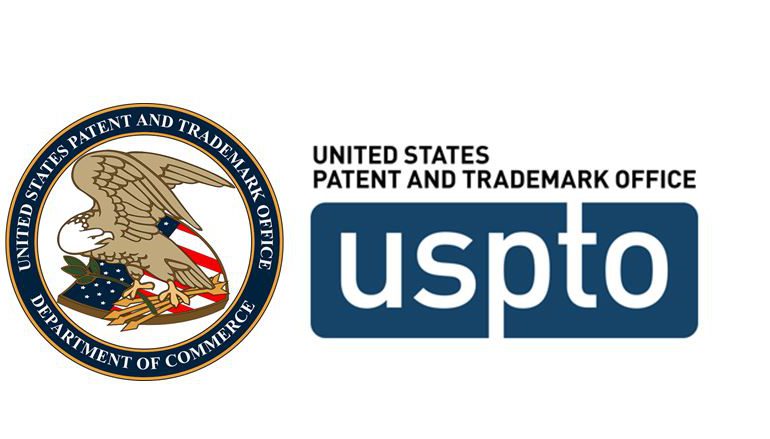
There are a handful of guys from Stanford University that all got offices together on Sand Hill Road In Palo Alto, around 2000 Sand Hill Road, or so. They all agreed to only invest in their friend’s things and to only allow certain politicians, that promise them certain kick-backs, to get elected. They signed contracts with every law firm in America that does Big Tech law so that nobody, outside of their group, could hire any tech law firm that they didn’t own and control. That is called “conflicting out a supply chain”. The only lawyers that could possibly help you fight Google, Facebook, Tesla, Twitter, YouTube, and your other competitors already work for Google, Facebook, Tesla, Twitter, YouTube, and your other competitors!
Some of the most famous corporations and entities in the world, have cited Scott’s inventions, in their federal patent office submissions and filings, as the original inventions that they took their own ideas from for their products. Their federal records verify that Scott’s inventions were first, before their product ideas. Per www.uspto.gov, these include: Sony Pictures, Microsoft, T-Mobile, Massachusetts Institute Of Technology, ATLAS Elektronik GmbH, Intel Corporation, Virtual I/O, Inc., International Business Machines Corporation – IBM, Matsushita Electric Industrial Co., Ltd., Fujitsu Limited, Philips Electronics N.V, Sanyo Electric Co. Ltd, Vpl Research, Inc., Sony Corporation, General Electric Company, At&T Corporation, Medialab Services S.A., Canon Kabushiki Kaisha, Samsung Electronics Co., Ltd., The Procter & Gamble Company, Microsoft Corporation, Cisco Technology, Inc., Sony Uk Ltd, The Board Of Trustees Of The University Of Illinois, Sun Microsystems, Inc., California Institute Of Technology, Micron Technology, Inc., Sony Broadcast & Communication, Sanyo Electric Co., Ltd., Rockwell Collins, Inc., Renault Visual, Google, Inc., YouTube, Inc., Alphabet, Inc., Yahoo, Inc., Sony Computer Entertainment, Inc., Lsa. Inc., Ford Motor Company, Nvidia, Inc., Xerox Corporation, Apple, Inc., Disney Enterprise Inc., Wipro Limited, Salesforce.Com, Inc., Verizon Digital Media Services Inc., Bright Data Ltd., Time Warner Cable Enterprises Llc, Harris Corporation,
and many more…
A number of these entities called us up, asked to look at our technologies, signed NDA’s yet copied our technologies, without paying, and made billions of dollars in profits. It costs over $3M in legal fees, up front, to sue each infringer. Since they each employ armies of deflection lawyers and years of delays ( Per www.usinventor.org ), it is sometimes easier to use Congressional and law enforcement RICO/anti-trust laws to put them out of business or gut their stock valuations. We have always made certain that the cost of the theft and harms is far greater than the small compensation that they owe us. It is always better for them to pay their bills than to rip us off.
It is even worse when you find out that your Senators, and other public figures, COVERTLY OWN Google, Facebook, Tesla, Twitter, YouTube, and your other competitors, and that those politicians rig the law to help the Big Tech companies they own, while harming you for competing with them!
Investigators have discovered that those competitors hired moles to spy on companies and technologies and they engage in RICO-violating anti-competitive attacks. When a start-up founder submits a business plan to a Silicon Valley Cartel VC, they just copy the idea and give it to one of their buddies to roll out under another name. Google, Facebook, YouTube, Netflix, Apple and others get these leaks from their VC’s and just copy your stuff that you had built and marketed years earlier. They throw millions of dollars of lawyers at you to stop you from collecting any of your patent use fees. Google, Facebook, YouTube, Netflix, Apple and others spend BILLIONS OF DOLLARS, per year, in political influence campaigns to keep inventors from ever getting paid. Almost all of the California politicians own portions of Google, Facebook, YouTube, Netflix, Apple and others, and block laws that will protect inventors.
Yes, your elected officials turn out to be either: financed by, friends, with, sleeping with, dating the staff of, holding stock market assets in, promised a revolving door job or government service contracts from, partying with, personal friends with, photographed at private events with, exchanging emails with, business associates of or directed by; our business adversaries, or the Senators and politicians that those business adversaries pay campaign finances to, or supply political digital search manipulation services to.
Criminal U.S. Senators and White House staff coordinated and profited in these schemes.
That is why no inventor can hire a big law firm to take on a Google, a Netflix, a Facebook, etc. It is illegal for this Cartel to blockade rights like that, it is an overt violation of RICO laws and anti-trust laws and other laws. The FBI is supposed to ARREST THEM! They never get arrested though, because they own all of the main politicians. Good for them – Bad for America! They are known as the “Silicon Valley Cartel“. They operate EXACTLY like a Mexican Cocaine Cartel but with technology. See more on the Cartel at:
Why does it matter?
Because patents on core technologies are worth hundreds of millions, or billions, of dollars.
—————————————-
These are the steps that the The Public must demand…
…in order to strengthen public integrity by eliminating corrupt financial conflicts in Congress. These “Big Tech Gorilla” abusers steal technology because they can steal technology. They buy politicians, lobbyists and shill reporters to help them get away with it.
Congress must be ordered, by the voters, to eliminate both the appearance and the potential for financial conflicts of interest. Americans must be confident that actions taken by public officials are intended to serve the public, and not those officials. These actions counter-act the corrupt actions taken by tech oligarchs officials in illicit coordination with U.S. Senators.
Small business has experienced all of the damages from each of the abuse-of-power issues listed below. Your public officials are being paid BRIBES through their family stock market holdings. We asked every office of Congress what the worst of the problems are and this is what they told us, below.
CUT THE CORRUPT OLIGARCHS OFF – Demand that Congress make it a felony for any politician, judge or regulator to own stocks, or to let their family own stocks. If they want to get rich, they can go into another line of work.
If the public can get these laws made, it will end 90% of American corruption. Politicians won’t allow these laws to be made because it will cut off their corruption. Thus: You have to force the politicians to make these laws and leverage them with investigations and recall elections.
These are the actions needed to resolve this corruption:
- Ban individual stock ownership by Members of Congress, Cabinet Secretaries, senior congressional staff, federal judges, White House staff and other senior agency officials while in office. Prohibit all government officials from holding or trading stock where its value might be influenced by their agency, department, or actions.
- Apply conflict of interest laws to the President and Vice President through the Presidential Conflicts of Interest Act, which would require the President and the Vice President to place conflicted assets, including businesses, into a blind trust to be sold off
- Require senior Department of Energy government officials, employees, contractors and White House staff to divest from privately-owned assets that could present conflicts, including large companies like Tesla, Google, Facebook, Sony, Netflix, etc., and commercial real estate.
- Make it a felony to not respond to a filing by a citizen within 48 hours. Former White House and Energy Department staff use ‘stone-walling’ to intentionally delay responses for a decade, or more.
- Apply ethics rules to all government employees, including unpaid White House staff and advisors.
- Require most executive branch employees to recuse from all issues that might financially benefit themselves or a previous employer or client from the preceding 4 years.
- Create conflict-free investment opportunities for federal officials with new investment accounts managed by the Federal Retirement Thrift Investment Board and conflict-free mutual funds.
- Close and lock the Revolving Door between industry and government and stop tech companies from buying influence in the government or profiting off of the public service of any official.
- Lifetime ban on lobbying by Presidents, Vice Presidents, Members of Congress, federal judges, and Cabinet Secretaries; and, multi-year bans on all other federal employees from lobbying their former office, department, House of Congress, or agency after they leave government service until the end of the Administration, but at least for 2 years ( and at least 6 years for corporate lobbyists).
- Limit the ability of companies to buy influence through former government officials.
- Require income disclosures from former senior officials 4 years after federal employment.
- Prohibit companies from immediately hiring or paying any senior government official from an agency, department, or Congressional office recently lobbied by that company.
- Prohibit the world’s largest companies, banks, and monopolies (measured by annual revenue or market capitalization) from hiring or paying any former senior government official for 4 years after they leave government service.
- Limit the ability of companies to buy influence through current government employees.
- Prohibit current lobbyists from taking government jobs for 2 years after lobbying; 6 years for corporate lobbyists. Public, written waivers where such hiring is in the national interest are allowed for non-corporate lobbyists only.
- Prohibit corporate outlaws like Google, Tesla, Facebook, Linkedin, Netflix, Sony, etc., from working in government by banning the hiring of top corporate leaders whose companies were caught breaking federal law in the last 6 years.
- Prohibit contractor corruption by blocking federal contractor and licensee employees from working at the agency awarding the contract or license for 4 years.
- Ban “Golden Parachutes” that provide corporate bonuses to executives for federal service.
- Publicly expose all influence-peddling in Washington.
- Strengthen and expand the federal definition of a “lobbyist” to include all individuals paid to influence government.
- Create a new “corporate lobbyist” definition to identify individuals paid to influence government on behalf of for- profit entities and their front-groups.
- Radically expand disclosure of lobbyist activities and influence campaigns by requiring all lobbyists to disclose any specific bills, policies, and government actions they attempt to influence; any meetings with public officials; and any documents they provide to those officials.
- End Influence-Peddling by Foreign Actors such as that which occurred in the ENER1, Severstal, Solyndra and related scandals.
- Fire the Fed officials that own, trade and pump stocks using the Fed itself for profiteering.
- The most senior officials in the U.S. Government are the worshipers of Elon Musk, investor’s in Elon Musk’s companies and suppliers, deciders of the financing for Elon Musk, suppliers of staffing to Elon Musk, recipients of political campaign financing by Elon Musk and Musk’s covert Google And Facebook partnership, social friends of Elon Musk and the attackers of Elon Musk’s competitors. Make this a felony.
- Combat foreign influence in Washington by banning all foreign lobbying.
- End foreign lobbying by Americans by banning American lobbyists from accepting money from foreign governments, foreign individuals, and foreign companies to influence United States public policy.
- Prohibit current lobbyists from taking government jobs for 2 years after lobbying; 6 years for corporate lobbyists. Public, written waivers where such hiring is in the national interest are allowed for non-corporate lobbyists only.
- End Legalized Lobbyist Bribery and stop lobbyists from trading money for government favors.
- Ban direct political donations from lobbyists to candidates or Members of Congress.
- End lobbyist contingency fees that allow lobbyists to be paid for a guaranteed policy outcome.
- End lobbyist gifts to the executive and legislative branch officials they lobby.
- Strengthen Congressional independence from lobbyists and end Washington’s dependence on
lobbyists for “expertise” and information. - Make congressional service sustainable by transitioning Congressional staff to competitive salaries that track other federal employees.
- Reinstate the nonpartisan Congressional Office of Technology Assessment to provide critical scientific and technological support to Members of Congress.
- Level the playing field between corporate lobbyists and government by taxing excessive lobbying beginning at $500,000 in annual lobbying expenditures, and use the proceeds to help finance Congressional mandated rule-making, fund the National Public Advocate, and finance Congressional support agencies.
- De-politicize the rulemaking process and increase transparency of industry efforts to influence federal agencies.
- Require individuals and corporations to disclose funding or editorial conflicts of interest in research submitted to agencies that is not publicly available in peer-reviewed publications.
- Prevent McKinsey-type sham research from undermining the public interest by requiring that studies that present conflicts of interest to undergo independent peer review to be considered in the rule-making process.
- Require agencies to justify withdrawn public interest rules via public, written explanations.
- Close loopholes exploited by powerful corporations like Google, Facebook, Tesla, Netflix, Sony, etc., to block public interest actions.
- Eliminate loopholes that allow corporations, like Tesla and Google, to tilt the rules in their favor and against the public interest.
- Restrict negotiated rule-making to stop industry from delaying or dominating the rule-making process by ending the practice of inviting industry to negotiate rules they have to follow.
- Restrict inter-agency review as a tool for corporate abuse by banning informal review, establishing a maximum 45-day review period, and blocking closed -door industry lobbying at the White House’s Office of Information and Regulatory Affairs.
- Limit abusive injunctions from rogue judges, like Jackson, et al, by ensuring that only Appeals Courts, not individual District Court judges , can temporarily block agencies from implementing final rules.
- Prevent hostile agencies from sham delays of implementation and enforcement bySee these third-party analysts value studies of some of Scott’s patents:using the presence of litigation to postpone the implementation of final rules.
- Empower the public to police agencies for corporate capture.
- Increase the ability of the public to make sure their interests are considered when agencies act.
- Create a new Office of the Public Advocate empowered to assist the public in meaningfully engaging in the rule-making process across the federal government.
- Encourage enforcement by allowing private lawsuits from members of the public to hold agencies accountable for failing to complete rules or enforce the law, and to hold corporations accountable for breaking the rules.
- Inoculate government agencies against corporate capture such as Google undertook against the White House.
- Provide agencies with the tools and resources to implement strong rules that reflect the will of Congress and protect the public.
- Boost agency resources to level the playing field between corporate lobbyists and federal agencies by using the proceeds of the tax on excessive lobbying and the anti-corruption penalty fees to help finance Congress-mandated rule-making and facilitate decisions by agencies that are buried in an avalanche of lobbyist activity.
- Reform judicial review to prevent corporations from gaming the courts by requiring courts to presumptively defer to agency interpretations of laws and prohibiting courts from considering sham McKinsey studies and research excluded by agencies from the rule-making process.
- Reverse the Congressional Review Act provision banning related rules that prevent agencies from implementing the will of Congress based on Congress’ prior disapproval of a different, narrow rule on a similar topic.
- Improve judicial integrity and defend access to justice for all Americans.
- Strengthen Judicial Ethics Requirements.
- Enhance the integrity of the judicial branch by strengthening rules that prevent conflicts of interest.
- Ban individual stock ownership by federal judges.
- Expand rules prohibiting judges from accepting gifts or payments to attend private seminars from private individuals and corporations.
- Require ethical behavior by the Supreme Court by directing the Court to follow the Code of Conduct that binds all other federal judges.
- Boost the transparency of Federal Courts.
- Enhance public insight into the judicial process by increasing information about the process and reducing barriers to accessing information.
- Increase disclosure of non-judicial activity by federal judges by requiring the Judicial Conference to publicly post judges’ financial reports, recusal decisions, and speeches.
- Enhance public access to court activity by mandating that federal appellate courts live-stream, on the web, audio of their proceedings, making case information easily-accessible to the public free of charge, and requiring federal courts to share case assignment data in bulk.
- Eliminate barriers that restrict access to justice to all but the wealthiest individuals and companies.
- Reduce barriers that prevent individuals from having their case heard in court by restoring pleading standards that make it easier for individuals and businesses that have been harmed to make their case before a judge.
- Encourage diversity on the Federal Bench.
- Strengthen the integrity of the judicial branch by increasing the focus on personal and professional diversity of the federal bench.
- Create a single, new, and independent agency dedicated to enforcing federal ethics and anti-corruption laws.
- Support stronger ethics and public integrity laws with stronger enforcement.
- Establish the new, independent U.S. Office of Public Integrity, which will strengthen federal ethics enforcement with new investigative and disciplinary powers.
- Investigate potential violations by any individual or entity, including individuals and companies with new subpoena authority.
- Enforce the nation’s ethics laws by ordering corrective action, levying civil and administrative penalties, and referring egregious violations to the Justice Department for criminal arrest and enforcement.
- Receive and investigate ethics complaints from members of the public.
- Absorb the U.S. Office of Government Ethics as a new Government Ethics Division tasked with providing confidential advice to federal employees seeking ethics guidance.
- Consolidate anti-corruption and public integrity oversight over federal officials, including oversight of all agency Inspectors General, all ethics matters for White House staff and agency heads, and all waivers and recusals by senior government officials.
- Remain independent and protected from partisan politics through a single Director operating under strict selection, appointment, and removal criteria.
- Provide easy online access to key government ethics and transparency documents, including financial disclosures; lobbyist registrations; lobbyist disclosures of meetings and materials; and all ethics records, recusals, and waivers.
- Maintain a new government-wide Office of the Public Advocate, which would advocate for the public interest in executive branch rule-making.
- Enforce federal open records and FOIA requirements by maintaining the central FOIA website and working with the National Archives to require agencies to comply with FOIA.
- Strengthen legislative branch enforcement.
- Expand an independent and empowered ethics office insulated from congressional politics.
- Expand and empower the U.S. Office of Congressional Ethics, which will enforce the nation’s ethics laws in the Congress and the entire Legislative Branch, including the U.S. Senate.
- Conduct investigations of potential violations of ethics laws and rules by Members of Congress and staff with new subpoena power.
- Refer criminal and civil violations to the Justice Department, the Office of Public Integrity, or other relevant state or federal law enforcement.
- Recommend disciplinary and corrective action to the House and Senate Ethics Committees.
- Boost transparency in government and fix Federal Open Records laws, public official and candidate tax disclosure.
- Disclose basic tax return information for candidates for federal elected office and current elected officials.
- Require the IRS to release tax returns for Presidential and Vice-Presidential candidates from the previous 8 years and during each year in federal elected office.
- Require the IRS to release t ax returns for Congressional candidates from the previous 2 years and during each year in federal elected office.
- Require the IRS to release tax returns and other financial information of businesses owned by senior federal officials and candidates for federal office.
- Require the IRS to release tax filings for nonprofit organizations run by candidates for federal office.
- Disclose the Cash behind Washington Advocacy and Lobbying.
- Prevent special interests from using secret donations from corporations and billionaires to influence public policy without disclosure.
- Require nonprofit organizations to list donors who bankrolled the production of any specific rule-making comment, congressional testimony, or lobbying material, and to reveal whether the donors reviewed or edited the document.
- Require individuals and corporations to disclose funding or editorial conflicts of interest in research submitted to agencies that is not publicly available in peer-reviewed publications.
- Prevent sham research, like that from DNC shill McKinsey Consulting, from undermining the public interest by requiring that studies that present conflicts of interest to independent peer review to be considered in the rule-making process.
- Improve the Freedom of Information Act (FOIA).
- Close the loopholes in our open records laws that allow federal officials to hide tech industry and Silicon Valley oligarch industry influence.
- Codify the default presumption of disclosure and affirmatively disclose records of public interest, including meeting agendas; government contracts; salaries; staff diversity; and reports to Congress.
- Require all agencies to use a central FOIA website that is searchable and has downloadable open records databases with all open FOIA requests and all records disclosed through FOIA.
- Strengthen FOIA enforcement by limiting FOIA exemptions and loopholes, and by giving the National Archives the authority to overrule agency FOIA decisions and to compel disclosure.
- Extend FOIA to private-sector federal contractors, including private federal prisons and immigration detention centers, and require large federal contractors to disclose political spending.
- Make Congress more transparent by ending the corporate lobbyists leg up in the legislative process. The public deserves to know what Congress is up to and how lobbyists influence legislation.
- Require all congressional committees to immediately post online more information, including hearings and markup schedules, bill or amendments text, testimonies, documents entered into the hearing record, hearing transcripts, written witness answers, and hearing audio and video recordings.
- Require Members of Congress to post a link to their searchable voting record on their official websites.
- Require lobbyists to disclose when they lobby a specific congressional office; specific topics of visit; the official action being requested; and all documents provided to the office during the visit.
Do these seem like common-sense rules that should have already been in place? They are!
These anti-corruption rules have been blocked by your own public officials because they work for themselves and not you!
News And Reports:
Report: Over 131 Federal Judges Broke The Law by Hearing Cases Where They Had A Financial Interest
https://www.businessinsider.com/congress-stock-act-violations-senate-house-trading-2021-9
71 Members of Congress Caught Violating Law on Stock Trades
congressional stock report lobbying federal government 4×3 … $200 is the standard amount — or waived by House or Senate ethics officials.
https://news.bloomberglaw.com/us-law-week/why-members-of-congress-should-not-trade-stocks
Why Members of Congress Should Not Trade Stocks – Bloomberg Law
Insider trading is a felony, but it is also difficult to prove. In 2012 Congress passed the Stop Trading on Congressional Knowledge Act (STOCK …
https://www.closeup.org/should-members-of-congress-be-banned-from-trading-stocks/
Should Members of Congress Be Banned from Trading Stocks?
They’re also the ones in charge of creating federal policy. The STOCK Act prohibits members of Congress from buying or selling stock on the …
Members of Congress increasingly receptive to stock trading ban
Members of Congress may soon be barred from trading stocks while in office as bipartisan support for a stock trading ban continues to grow.
Lawmakers can trade stocks, but many push for change – NY1
The bill itself does not ban members of Congress from trading stocks, but requires certain government officials – like lawmakers, the president …
https://www.nytimes.com/2022/02/18/opinion/congress-stock-trading-ban.html
Members of Congress Should Not be Trading Stocks, Ever
It has been a decade since Congress last made a significant effort at policing itself in this area. The Stock Act of 2012, among other measures, …
https://www.theatlantic.com/politics/archive/2022/01/congress-stock-trading-ban/621402/
The Bill That Congress Might Be Embarrassed Enough to Pass
Yet the supporters of a ban on lawmaker stock trading still have a ways to go. Public support for a bill can mask broader private opposition, …
https://www.cnbc.com/2022/02/09/congress-moves-towards-banning-members-from-trading-stocks.html
Congress moves to ban stock trading by members as Pelosi … – CNBC
After months of resistance, House Speaker Nancy Pelosi has greenlighted a plan to ban members of Congress fromtrading stock, CNBC confirmed …

